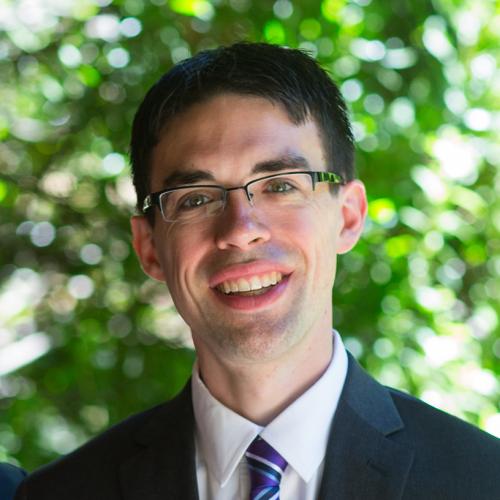Collecting and understanding data is important, but equally important is the ability to tell meaningful stories based on data. Students in the iSchool's Data Science Storytelling course (IS 590DST) learn data visualization as well as storytelling techniques, a combination that will prove valuable to their employers as they enter the workforce.
The course instructors, Associate Professor and Interim Associate Dean for Academic Affairs Kate McDowell and Assistant Professor Matthew Turk, introduced Data Science Storytelling in fall 2017. The course combines McDowell's research interests in storytelling practices and applications and Turk's research interests in data analysis and visualization.
Students in the course learn storytelling concepts, narrative theories, and performance techniques as well as how to develop stories in a collaborative workshop style. They also work with data visualization toolkits, which involves some knowledge of coding.
Ashley Hetrick (MS '18) took Data Science Storytelling because she wanted "the skills to be able to tell the right story when the time is right for it." She appreciated the practical approach, which allowed the students to immediately apply the skills they learned, such as developing a story structure and using a pandas DataFrame to support and build a story. Hetrick is using those skills in her current work as assistant director for research data engagement and education at the University of Illinois.
"I combine tools and methods from data science and analytics with storytelling to make sense of my unit's data and to help researchers make sense of theirs," she said. "In my experience, few researchers like data for its own sake. They collect, care for, and analyze data because they're after what all storytellers are after: meaning. They want to find the signal in all of this noise. And they want others to find it too, perhaps long after their own careers are complete. Each dataset is a story and raw material for stories waiting to be told."
According to Turk, the students who have enrolled in the course have been outstanding, "always finding ways to tell meaningful stories from data." He hopes they leave the class with an understanding that stories permeate their lives and that shaping the stories they tell others and about others is a responsibility they carry with them.
"One reason that this course means a lot to me is because it gives students the opportunity to really bring together the different threads of study at the iSchool," Turk said. "It's a way to combine across levels of technicality, and it gives students permission to take a holistic approach to how they present data."

